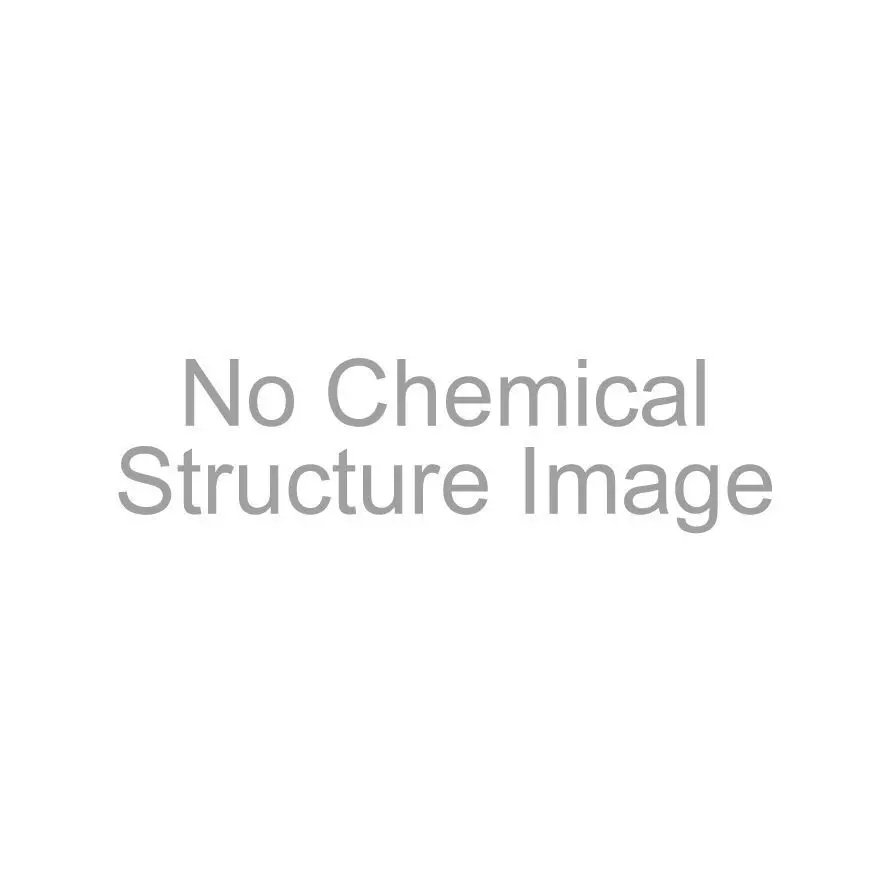Maximum quantity allowed is 999
CAS RN: 7632-00-0 | Product Number: S0565
Sodium Nitrite
Purity: >98.5%(T)
* The displayed price is the unit price and does not include consumption tax. The unit prices displayed are the latest and are subject to change without notice.
* To send your quote request for bulk quantities, please click on the "Request Bulk Quote" button. Please note that we cannot offer bulk quantities for some products.
*TCI frequently reviews storage conditions to optimize them. Please note that the latest information on the storage temperature for the products is described on our website.
| Product Number | S0565 |
Purity / Analysis Method 
|
>98.5%(T) |
| Molecular Formula / Molecular Weight | NaNO__2 = 68.99 |
| Physical State (20 deg.C) | Solid |
Storage Temperature 
|
Room Temperature (Recommended in a cool and dark place, <15°C) |
| Store Under Inert Gas | Store under inert gas |
| Condition to Avoid | Hygroscopic |
| CAS RN | 7632-00-0 |
| Reaxys Registry Number | 906771 |
| Merck Index (14) | 8648 |
| MDL Number | MFCD00011118 |
| Appearance | White to Light yellow powder to crystal |
| Purity(Redox method) | min. 98.5 % |
| Melting Point | 280 °C(dec.) |
| Solubility in water | Soluble |
| Degree of solubility in water | 820 g/l 20 °C |
| Solubility (soluble in) | Methanol |
| Solubility (slightly sol. in) | Ether |
| Pictogram |




|
| Signal Word | Danger |
| Hazard Statements | H301 : Toxic if swallowed. H319 : Causes serious eye irritation. H361 : Suspected of damaging fertility or the unborn child. H362 : May cause harm to breast-fed children. H370 : Causes damage to organs. H341 : Suspected of causing genetic defects. H400 : Very toxic to aquatic life. H272 : May intensify fire; oxidizer. |
| Precautionary Statements | P501 : Dispose of contents/ container to an approved waste disposal plant. P263 : Avoid contact during pregnancy and while nursing. P273 : Avoid release to the environment. P260 : Do not breathe dust. P270 : Do not eat, drink or smoke when using this product. P202 : Do not handle until all safety precautions have been read and understood. P220 : Keep away from clothing and other combustible materials. P210 : Keep away from heat, hot surfaces, sparks, open flames and other ignition sources. No smoking. P201 : Obtain special instructions before use. P264 : Wash skin thoroughly after handling. P280 : Wear protective gloves/ protective clothing/ eye protection/ face protection. P370 + P378 : In case of fire: Use dry sand, dry chemical or alcohol-resistant foam to extinguish. P391 : Collect spillage. P337 + P313 : If eye irritation persists: Get medical advice/ attention. P305 + P351 + P338 : IF IN EYES: Rinse cautiously with water for several minutes. Remove contact lenses, if present and easy to do. Continue rinsing. P308 + P311 : IF exposed or concerned: Call a POISON CENTER/doctor. P301 + P310 + P330 : IF SWALLOWED: Immediately call a POISON CENTER/doctor. Rinse mouth. P405 : Store locked up. |
| Chemical Substance Law (ENCS) |
1-483 |
| Fire Defense Law | Group-1-I |
| Poisonous or Deleterious | Deleterious substance |
| RTECS# | RA1225000 |
| UN Number | UN1500 |
| Class | 5.1 / 6.1 |
| Packing Group | III |

-
Used Chemicals
-
Procedure
-
Potassium iodide (415 mg, 2.5 mmol, 2.5 eq.) and sodium nitrite (172 mg, 2.5 mmol, 2.5 eq.) in water (5 mL) were added dropwise to the solution of p-anisidine (123 mg, 1.0 mmol) and p-TsOH·H2O (190 mg, 1.0 mmol, 1.0 eq.) in acetonitrile (10 mL) at 0 °C. The mixture was stirred at room temperature for 2 hours. The reaction was quenched with 10% Na2S2O3 aq. (15 mL) and the aqueous layer was extracted with ethyl acetate (15 mL x 3). The combined organic layer was washed with 2 mol/L HCl aq. (15 mL), sat. NaHCO3 aq. (15 mL), and brine (15 mL), dried over sodium sulfate and filtered. The solvent was removed under reduced pressure and the residue was purified by column chromatography (on silica gel, ethyl acetate:hexane = 1:4) to give 4-iodoanisole as a pale red solid (154 mg, 66% yield).
-
Experimenter’s Comments
-
The reaction mixture was monitored by UPLC.
-
Analytical Data
-
4-iodoanisole
1H NMR (400 MHz, CDCl3); δ 7.56 (d, J = 8.0 Hz, 2H), 6.68 (d, J = 8.0 Hz, 2H), 3.78 (s, 3H).
-
Lead Reference
-
- A New, One-Step, Effective Protocol for the Iodination of Aromatic and Heterocyclic Compounds via Aprotic Diazotization of Amines
Documents
Safety Data Sheet (SDS)
The requested SDS is not available.
Please Contact Us for more information.
Specifications
C of A & Other Certificates
Sample C of A
A sample C of A for this product is not available at this time.
Analytical Charts

The requested analytical chart is not available. Sorry for the inconvenience.






